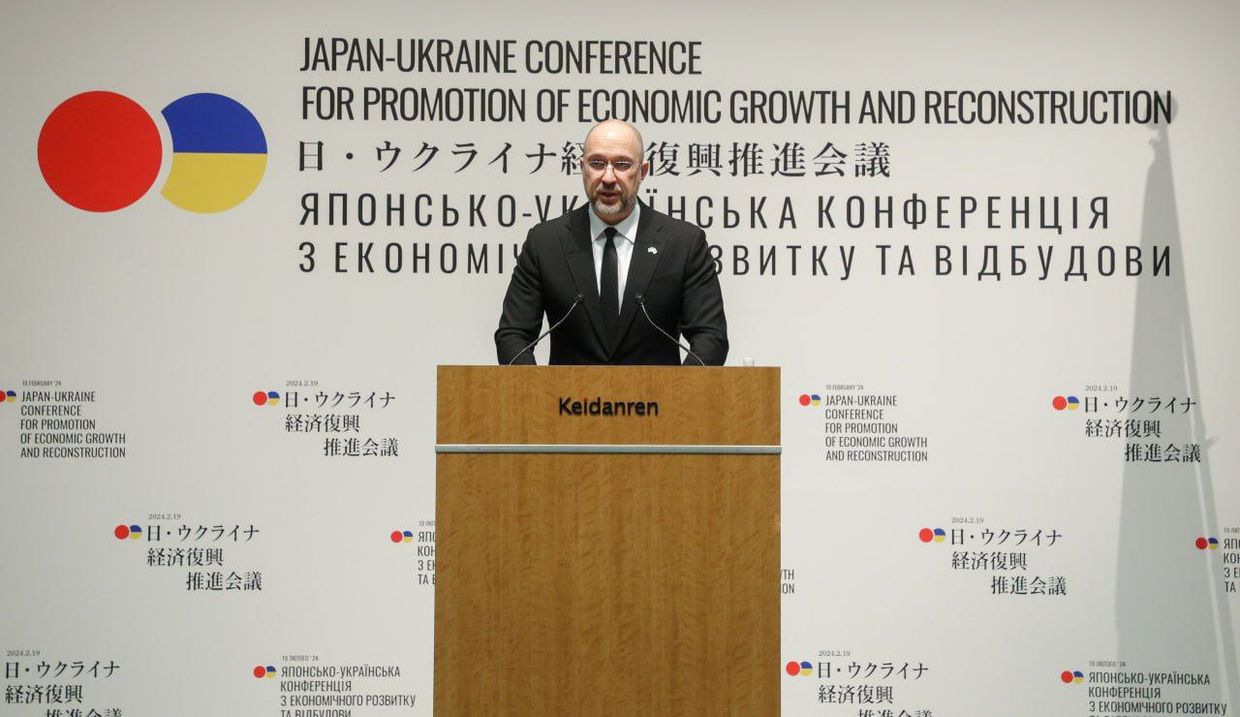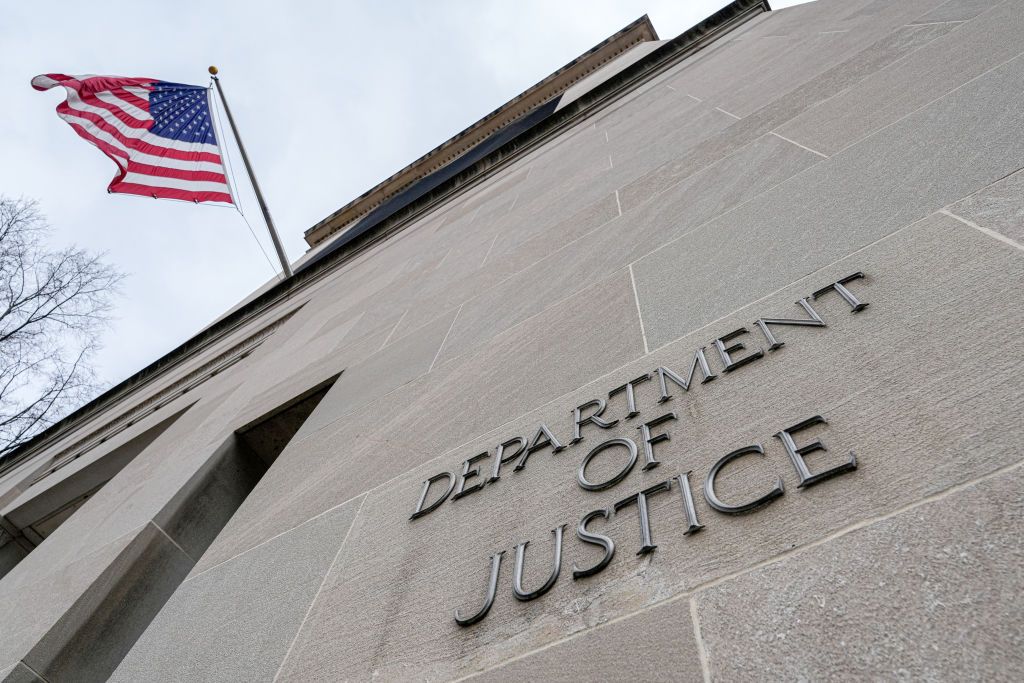Ukraine state-owned enterprises weekly — Issue 119

Editor’s Note: This is issue 119 of Ukrainian State-Owned Enterprises Weekly, covering events from Feb. 10-Feb. 16, 2024. The Kyiv Independent is reposting it with permission.
Ukrainian SOE Weekly is an independent weekly digest based on a compilation of the most important news related to state-owned enterprises (SOEs) and state-owned banks in Ukraine. The contents of this publication are the sole responsibility of the editorial team of the Ukrainian SOE Weekly. The SOE Weekly is produced and financed by Andriy Boytsun. Communications support is provided and financed by CFC Big Ideas. The SOE Weekly is not financed or influenced by any external party. Editorial team: Andriy Boytsun, Oleksiy Pavlysh, Dmytro Yablonovskyi, Oleksandr Lysenko, and Mariia Kramar.
Corporate governance of SOEs
Cabinet re-appoints Mishyn to Ukrzaliznytsia’s management. On Feb. 13, the Cabinet of Ministers re-appointed Anton Mishyn as a member of Ukrzaliznytsia’s executive board until March 31, 2025.
As we wrote in Issue 84, on April 18, 2023, the Cabinet had appointed Mishyn as a new member of the company’s executive board for six months.
According to Ukrzaliznytsia’s charter, the Cabinet appoints the CEO and executive board members on proposal of the company’s supervisory board. That is, in the case of Ukrzaliznytsia, the Cabinet has the final say, not only on the CEO, but also all other executive board members.
Mishyn has been the chief financial officer (CFO) of Ukrzaliznytsia since August 2022.
From July 2019 to April 2022, he was the executive director and director of finance and risks at DTEK Renewables. From 2016 to 2019, Mishyn worked as the CFO at DTEK Energy.
In 2015-2016, he worked as the CFO and a management board member at Ukrtransnafta. From 2014 to 2015, he was director of the economy and planning department at Naftogaz.
From 2008 to 2013, Mishyn worked as the finance director at Yenakiieve Steel Group (part of Metinvest group). See more in Issue 84.
Banks
PrivatBank advances Hr 26 billion ($679 million) of income tax and the first tranche of dividends for 2023 to the state budget, the bank’s press office reported on Feb. 15.
As we reported in Issue 118, on Feb. 5, the Cabinet of Ministers set the minimal dividend pay-out ratio for SOEs at 80%, but SOEs can choose to pay higher dividends.
In accordance with the Cabinet’s decision, PrivatBank would pay 80% of its net profit for 2023 in dividends. The bank reported a net profit of Hr 37.8 billion ($987 million) in 2023. See Issue 118 for more detail.
OTP is interested in buying Sense Bank. According to Ekonomichna Pravda’s (EP) sources, western banking groups, including at least Hungarian OTP Bank Plc., are indeed interested in privatising Sense Bank.
As we reported in Issue 98, Sense Bank, previously owned by sanctioned Russian oligarchs Mikhail Fridman, Petr Aven, and Andrey Kosogov, was nationalised in late July 2023.
OTP’s Ukrainian subsidiary refused to respond to EP’s request for comment on the potential deal, saying that it was “not authorized to comment on the group’s intentions."
If the deal goes through and the Ukrainian OTP is merged with Sense Bank, the resulting entity could become the fourth largest in Ukraine by net assets, behind only the state-owned PrivatBank, Oschadbank, and Ukreximbank, EP added.
If OTP’s interest is real, the potential sale of Sense Bank may face some difficulties, as the Hungarian group still operates in Russia. For this reason, the National Agency on Corruption Prevention (NACP) put OTP Bank on the list of companies sponsoring the war.
However, the bank was removed from this list at Hungary’s request in October 2023. In return, Hungary promised to unblock the allocation of 500 million euros to Ukraine from the EU military fund, the media outlet also said.
At the same time, investors’ interest in Ukrgasbank looks less realistic, EP said. According to EP, the Finance Ministry has intensified negotiations with the International Finance Corporation (IFC) to have the Corporation enter the equity of Ukrgasbank.
As we wrote in Issue 12 three years ago, Ukrgasbank clinched a convertible loan agreement with the IFC on Jan. 25, 2021. Yuriy Draganchuk, deputy finance minister of Ukraine, said back then that the IFC would provide Ukrgasbank with a five-year loan of 30 million euros, which it could convert into an up to 20% stake in the bank’s equity.
As we reported in Issue 116, on Jan. 24, Draganchuk told EP that late last year, foreign investors expressed interest in privatizing two Ukrainian state-owned banks, Ukrgasbank and Sense Bank. The ministry is preparing the banks for sale and will soon hire financial advisers, he said. See Issue 116 for more detail.
Energy sector
Naftogaz Group pays Hr 6 billion in taxes for the first month of 2024. On Feb. 13, Naftogaz Group reported that it paid Hr 6.1 billion ($159 million) into state and local budgets for January 2024.
According to the company, that accounts for 8.5% of Ukraine’s total tax revenue for this period.
As we reported in Issue 115, Naftogaz Group paid Hr 83.4 billion ($2.2 billion) in taxes to the state budget and another Hr 6.8 billion ($177.6 million) to local budgets in 2023.
As we wrote in 2023, Naftogaz Group paid:
- Hr 33 billion ($861 million) in taxes for the first four months (January–April 2023, see SOE Weekly’s Issue 87);
- Over Hr 48 billion ($1.3 billion) for the first seven months (January–July 2023, see Issue 99);
- Over Hr 70 billion ($1.8 billion) for the first nine months (January–September 2023, see Issue 107); and
- Over Hr 75 billion ($1.9 billion) for the first ten months (January–October 2023, see Issue 111).
GTSOU to receive 1,800 protective gabions from Japan. On Feb. 12, the Gas Transmission System Operator of Ukraine (GTSOU) reported that Kuninori Matsuda, Japan’s ambassador to Ukraine, and Satoshi Sugimoto, deputy chief representative of the Ukrainian Office of the Japan International Community Agency (JICA), announced the handover of 1,800 gabions that would be used for the physical protection of GTSOU’s critical infrastructure in various regions of Ukraine.
A total of 320 gabions have already been delivered, the company said. According to GTSOU’s CEO Dmytro Lyppa, they would be distributed between all the company’s production divisions. They will be especially useful in the frontline regions, he added.
GTSOU will get the rest soon. There are plans to install the barriers as soon as they arrive.
As we reported in Issue 114, Russia continued to launch missile and drone attacks against Ukraine’s energy infrastructure in 2023.
After every Russian mass missile attack on Ukraine’s vital infrastructure in autumn 2022 and winter 2023, there were emergency outages, lasting for days due to the ongoing repair works. During such outages, people in Ukraine were left without electricity, heating, water supply, or access to mobile phone networks.
Ukrenergo, Naftogaz, GTSOU, and Ukrhydroenergo continue to receive financial support from international donors to restore its infrastructure after the attacks. See Issue 114 for more detail.
Privatization
SPFU offers the assets of Kyiv Prosthetic and Orthopaedic Enterprise for sale, bids start at Hr 31 million ($809,000), the State Property Fund’s (SPFU) press office reported on Feb. 9.
The assets are offered for sale as a “single property complex” (meaning that the SPFU is selling the company’s assets rather than the legal entity itself. – SOE Weekly). The complex includes medical and production buildings in Kyiv, as well as prosthetic and orthopaedic workshops in Chernihiv and Cherkasy, the SPFU added.
Under the terms of the auction, the new owner must pay off the company’s debt of Hr 34.4 million ($898,000). The new owner will not be allowed to change the company’s primary line of business for 10 years or fire current employees for six months after the deal is closed.
The company is functioning, but it is unprofitable and needs to attract investment. Prosthetics companies are of strategic importance, especially in times of full-scale war, when there is a growing need to increase production and introduce new technologies.
SOEs in this sector often fail to compete with private companies and slide into unprofitability. That is why they need a strategic investor to develop, according to the SPFU.















